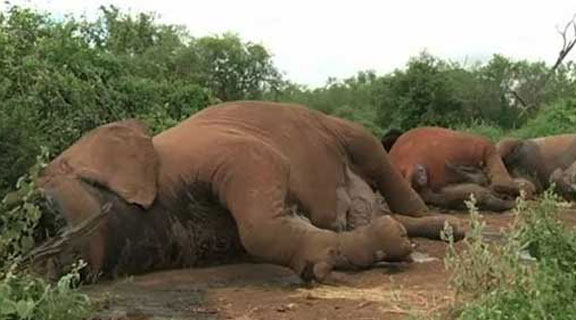×
The Standard e-Paper
Smart Minds Choose Us
 |
| Some of the elephants killed by poachers. [Photo:File/Standard] |
By KIBIWOTT KOROSS
NAIROBI, KENYA: Most ivory impounded in Kenyan ports are from neighbouring countries enroute to other destinations.